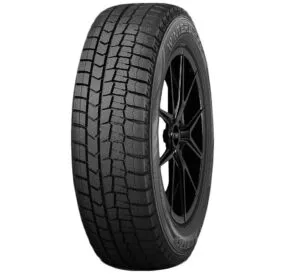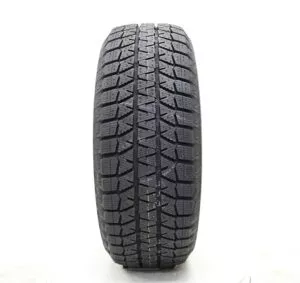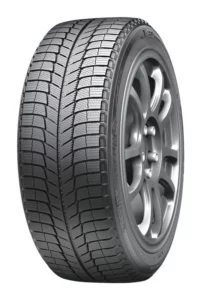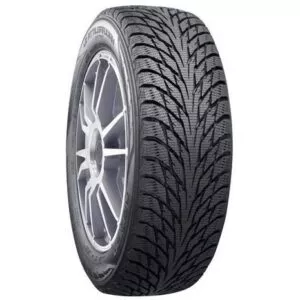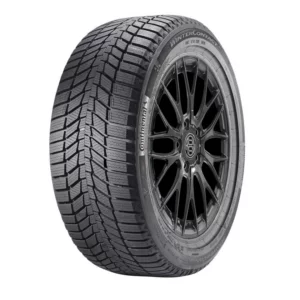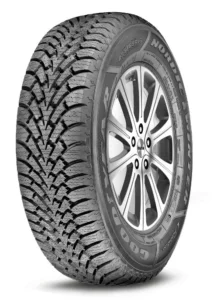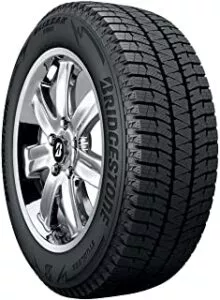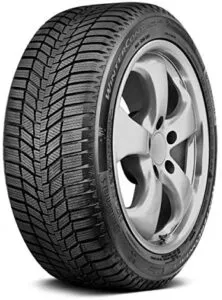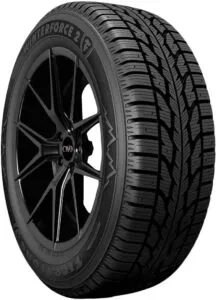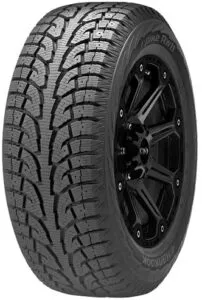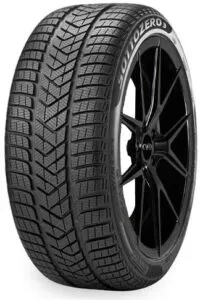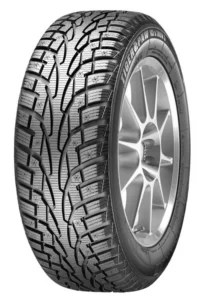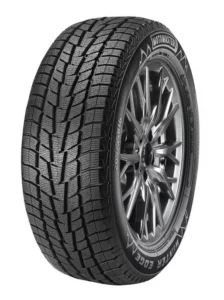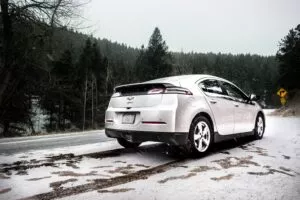
The Best Winter Tires in Canada
No matter what province you live in, we all know how it is during the winter months. Snowy, slushy, unpleasant. Black ice and rainy but frozen days are too common, and it can be stressful deciding what kind of tires you need for the job. Especially if you follow the yearly tradition of waiting to change your tires until after the first snowfall.
If you’re having trouble deciding on a new pair of winter tires, or are experiencing Canadian winter for the first time and don’t know what to decide on, below we’ve compiled the top-rated winter tires on the market for nearly any budget or vehicle make.
Our top picks
How to choose winter tires
Regardless of what vehicle you’re driving, winter tires generally come down to their size, rubber compound softness, traction, grip, and tread. All important things to look out for when you’re shopping around for a good winter tire that will last you multiple seasons:
- Size – It goes without saying that if you purchase winter tires that don’t suit your vehicle type then they’re essentially useless. Be careful when buying new tires, and make sure they suit your vehicle’s size. You can downsize with winter tires – with some manufacturers encouraging it – as it can help improve traction and safety.
- Tread Depth – Winter tires have a much deeper tread than normal tires for other seasons, so that they can better grip snow and ice, still remaining stable on dry roads as well.
- Softness – Compared to all-season or all-weather tires, the winter variety is made from a special softer rubber compound that gets more stable and grippy during cold weather, making them a must-have when the temperature dips below freezing.
- Grip Ability – If you want even more grip or traction, there are winter tires available that have studs embedded in them to really hold onto the road. A word of warning though, make sure to check that your province allows studded or chained tires before installing, as some have them banned since they can damage roads in certain circumstances.
- Price – Cost can be a big factor when it comes to tires, as they aren’t exactly the cheapest. No matter your budget though, you should be able to find a brand that suits your needs without breaking the bank.
Why trust us
With so many options available, and countless specific types of winter tires available for any weather Canada throws at us, it can be overwhelming to know where to start when choosing good winter tires so that you can drive safely during snowstorms, on slippery roads, and everything else in-between.
Our team spent over 10 hours reviewing and choosing the best winter tires, based on top-reviews and tester analysis from trusted review websites such as Consumer Reports.
The best winter tires overall
Nokian Hakkapeliitta R2
With superb traction, top-notch safety, and decent fuel-saving rolling resistance, the Nokian Hakkapeliitta R2 is an overall winner for any winter driving you’ll be doing.
Additional grip particles have been added into the rubber compound to give even more traction on icy roads, and is designed with tire siping, allowing the tires to move softer, wet snow out of the way like slush. It’s a great tire throughout the entire winter, especially those early-spring months where the roads are covered in slush and mud.
Top-notch handling and the ability to keep these tires on the road regardless of the weather is well-worth looking into.
Pros
- Amazing traction.
- Fuel-saving.
Cons
- It may not fit larger trucks.
Best winter tires for trucks
Michelin X-Ice Xi3
Great tires for handling almost any weather or road condition winter can throw at them, Michelin’s X-Ice Xi3 winter tires are top of their line for anything you’d need to drive your vehicle through.
With size options available for most vehicle sizes, and holding up especially well for wetter climates, this is the top-rated pick for trucks and larger SUVs. Regardless of what you’re carrying or hauling they hold up well for years.
They’re quieter on dry roads than other non-studded winter tires, and tear through slush and wet snow without any worry of losing traction and hydroplaning, making the whole comfort and noise while driving a pleasant experience.
Cornering stability and steering control is good, no matter whether the road conditions change between dry, wet, icy, or completely covered in snow.
Pros
- Low sound level.
- Great braking performance.
Cons
- Could handle ice a bit better.
Best winter tires for snow
Goodyear Nordic Winter Tire
If you live in a province that gets an incredible amount of snow during the winter months, (looking at you Quebec), the Goodyear Nordic Winter Tires have you covered.
Whether the snow is barely there or towering over seven-feet tall, you can’t go wrong with a good tire made to handle any snow condition or snowstorm. Being able to drive safely is a top priority and when you need that extra traction to push through the snow, these tires can do it all.
Driving on dry roads don’t make these tires feel unwieldy, as most reviews have said they feel similar to all-seasons while the noise stayed pleasantly low – compared to most winter tires that can be terrible loud during the highway drives or drier days where there isn’t a lot of rain or snow covering the streets.
Pros
- Handles deep snow.
- Good in poor winter conditions.
Cons
- It can be noisy.
Best winter tires for Canadian winters
Bridgestone Blizzak WS90
Well known for being the top-rated winter tires in Canada, the Blizzak WS90’s are no stranger to Canadian winters, regardless of what the weather may be.
If you’re looking for a comfortable, quiet tire that doesn’t lose traction from anything thrown at it, these are worth checking out. They’re studless and are developed for anyone driving sedans, coupes, minivans, and crossovers looking for a sturdy and effective winter tire.
They’re relatively inexpensive compared to most other winter or ice tires and can effectively save you money in the long run as far as wearability and use are concerned. Lasting for a good five to six years, these winter tires won’t break the bank or let you down driving through any terrain – regardless of which province or winter weather you experience.
Pros
- Quiet.
- Good traction.
Cons
- Not good to mix with other brand tires.
Best rated winter tires
Continental WinterContact SI
Continental’s WinterContact SI tires are studless ice and snow winter tires developed mainly for anyone that drives coupes, sedans, minivans, and crossover vehicles.
Enhancing traction on cold, wet, snow-covered, and icy roads these are top-rated winter tires for a reason. High-density multi-angled zigzag styled sipes increase the surface of the treads to bite into snow and slush, enhancing wet road and wintertime traction, while the Traction Groove Technology ridges provide additional 3-dimensional edges to improve braking traction in deep snow.
A nice feature of the WinterContact SI tires is that once the tread is worn down to approximately 50%, a winter depth tread indicator moulded into the tread design lets you know that it’s reaching the end of its proper ability to provide beneficial traction in snow. It’s definitely a peace of mind knowing when to get your tires changed, instead of waiting until it’s too late.
Pros
- Excellent traction.
Cons
- It can be noisy.
- Has to be installed in sets of four.
Best winter tires for wet conditions
Firestone Winterforce 2
Firestone’s Winterforce 2 studdable winter tires are designed for couples, minivans, and sedans that are driving on mostly wet or slushy surfaces and need a traditional wintertime tire for traction on wet, dry, and snow-covered roads.
Featuring a special cold-weather compound molded into a directional tread with deep grooves, wide notches, and open shoulder slots to swiftly and easily help move slush and water away from the tires, allowing more contact with the road while increasing traction and resisting hydroplaning.
Certain sizes are available with added studs, increasing the traction and grip through more ice and snow if necessary, depending on your driving needs and what your commute entails. Whether you’re driving through wet mountain passes in BC, or through the early-spring slush that every province knows well, these winter tires have your back and worth looking into.
Pros
- Excellent performance.
Cons
- A bit noisy on dry roads.
Best Hankook winter tires
I*pike RW11
An eco-friendly tread compound sports a larger contact patch for increased traction and handling on dry road surfaces. Hankook’s unique stiffness control contour theory technology stiffens the sidewall and adds a higher cornering performance than most other winter tires.
If you find that you require studs for even better traction on snow-packed roads, there are 6 pin-rows that allow you to do so, for optimal winter driving. These tires are built to run more quietly through a special tread block pitch and have groove angles that work together to lower road noise.
The handling and traction on the I*Pike RW11’s are smooth, with a comfortable ride no matter what kind of road surface you’re driving on, granting more control despite the weather. The tread life has been reported to be excellent and these last most drivers around five to six years, which is average or above average for studded/studdable winter tires like these.
Pros
- Brake traction good on snow/icy roads.
- Excellent with curves.
Cons
- Can be noisy once they wear down.
Best winter tires for high-performance cars
Pirelli Winter Sottozero 3
For those who have high-performance sports cars or any top-tier speedy car – the Pirelli Winter Sottozero 3’s are well worth looking into.
Designed to enhance the characteristics of sports cars with an optimized profile that guarantees a longer tire life, these high-performance tires are built to keep fast cars on the road during most winter conditions.
Best suited for more wet winter climates like BC, they have deep grooves on the surface that allow water to disperse more easily, including slush and wet snow. Designed to be more all-seasonal tires than fully winter ones, as most high-performance vehicle owners like to drive year-round, these use an innovative compound with specialized polymers that improve the tread rubbers mechanical, thermal, and dynamic properties.
High-density 3D sipe technology improves braking performance and hard-packed snow traction. Internally the structure includes twin steel belts reinforced by spiral-wrapped polyamide that enhances thermal stability, making the tires less sensitive to air and road temperature changes.
Pros
- Excellent handling in wet weather.
Cons
- Can be pricey.
- Tread can wear off fast.
Best Uniroyal winter tires
Uniroyal Tiger Paw Ice & Snow 3
With a low price point and an excellent rating on driving through snow, and rating among the better studdable winter tires, Uniroyal’s Tiger Paw Ice & Snow are hard to beat.
A unique winter tread compound was engineered to remain flexible and adhere to the pavement in very cold temperatures. Combining that with a directional tread pattern that features zigzag sipes and interlocking 3D shoulder ones, with wider lateral grooves around the tire that reliably deliver traction in snow, slush, ice, and every other winter condition.
They are pinned all around to fit #12 sized studs if you need even more grip on thicker ice, deep or hard-packed snow, and can help if you hit a patch of black ice. Included into the compound is an added silica, allowing it to drive easily on the wet ground whether that’s slush or wet ice.
One caveat of these winter tires that has been mentioned in a few reviews is that if you’re a more spirited driver is that the softer sidewalls flex more during harder corning maneuvers. Otherwise, if that doesn’t bother you these are an overall great purchase for the cost, driving on dry pavement is comfortable and smooth, and tread life appears to be good and decently long-lasting.
Pros
- Affordable.
- Good in snow.
Cons
- Less traction on corners.
Best winter tires for highway driving
MotoMaster Winter Edge
MotoMaster might not be a well-known brand but they are highly rated, available exclusively at Canadian Tire as newer and relatively affordable winter tires.
Like most winter tires these have tons of multi-angle sipes, for channelling away water and slush while simultaneously helping to bite deeper into ice and hard-packed snow. The center track of the tire has saw-toothed edges to increase its footprint on the snow, allowing for better stability, traction, and having a quicker response to acceleration so that you don’t spin out or lose control when starting or stopping your car, or speeding up on the roads.
Tire noise is seemingly fine on dry and wet roads and is comfortable for long portions of driving (Hello, Canada) Wear and tear seems reasonable for most winter tires, lasting around five years. The tread compound is formulated with advanced silica and polymers to keep it flexible and able to handle the coldest temperatures. The directional tread and lateral grooves help the sipes expel more water to ensure you stay on the road.
Pros
- Competitive price.
Cons
- Fast tread wear.
How we picked the best winter tires
For this buying guide, we placed a priority on different functionalities and placed pricing as a secondary factor while still keeping in mind budget levels and accessibility.
Overall, we wanted to find winter tires that best suit all levels of winter driving, while still staying affordable for most.
Frequent questions about winter tires
Can I use winter tires in summer?
You can, but you shouldn’t. Winter tires are generally made with a different rubber compound that stays pliable in colder temperatures. Heat is hard on winter tires, meaning that on summer pavement they’ll wear out much faster. The softer rubber won’t handle well, and the deep tread depth can be a safety hazard.
When to put on winter tires?
It varies by province and the weather where you are, but a general guide to follow is that once it hits under 10°C, it’s time to think about changing to winter tires. Don’t wait until you hit that first patch of black ice.
All-weather vs all season?
All-weather tires are generally good for all year round, whereas all-seasons are more for just spring, summer, and fall.
All season vs winter tires?
All-season tires are more meant for three seasons instead of four, with the rubber and handling not really up to par with Canadian winters. Winter tires are specially made with snow, ice, and slush in mind with deeper treads and softer rubber.
All-weather tires vs. winter tires?
Winter tires are made from a special rubber that gains grip and stability once the temperature drops. All-weather is made roughly of the same compound, but sturdy enough to handle summer heat without wearing out too quickly.
How long do winter tires last?
Winter tires last for at least four or five seasons, depending on how much you’re driving and what road conditions are during the winter months.
When to change winter tires to summer?
Changing tires back to summer ones after winter is generally the same rule of thumb – once the weather reaches around 10 degrees Celsius.
When do I replace winter tires?
Most manufacturers recommend replacing your winter tires when the tread depth reaches 4/32” in the winter. If you allow your tires to wear past that, you’re essentially driving on a bald tire, which is a safety hazard for you and others.
Where to buy winter tires?
Depending on where you are in Canada, most places will help you in buying the right tires for your vehicle, including these major retailers: Kal-Tire, Canadian Tire, Fountain Tire, Costco, Walmart, and Amazon.
When do winter tires need to be on in Ontario/Quebec?
Winter tires in Ontario need to mandatorily be on from December 1st to March 15th. In Quebec, they need to mandatorily be on during the same dates – December 1st to March 15th.
How to choose winter tires?
To qualify as a winter tire in Canada, all tires must have the three-peaked mountain/snowflake “Alpine” logo. To choose winter tires for your vehicle, make sure they have that symbol. BC has mandatory requirements that some include the M&S “Mud + snow” branding as well.
Know your tire size, consider sizing down for winter tires, know what types of roads you drive on, whether you’ll need tires more suited for snow or ice, etc.
What size winter tires do I need?
Depending on your vehicle, you can downsize to smaller tires for winter, as they can improve grip and traction.
Can you change winter tires yourself?
If you have the necessary skills to change a flat tire, you can change over to winter tires yourself as well.
How fast do winter tires wear in summer?
How fast winter tires wear in summer depends on the temperature and what kinds of roads you drive. Ideally, you shouldn’t drive on winter tires at all in the summer, as the rubber compound and tread depths aren’t made for heat and can be a safety hazard.
Which BC highways require winter tires?
Winter tires or chains are required on most routes in BC from October 1st to March 31st. Some select highways, including mountain passes and rural routes in high snowfall areas have the date extended until April 30th to account for early-spring snowfall.
Are winter tires worth it?
Winter tires have the advantage of superior tread patterns designed for traction on ice and snow and are made from softer rubber compounds to enhance grip. When it’s cold, they’ll outperform an all-season tire, whether it’s dry pavement or slush.
Are Off-Road Tires Considered Winter Tires?
While they have a similar depth of tread, winter tires are on a whole other level when it comes to liability and safety during any winter weather.
Why Do You Need Winter Tires?
If you’re living anywhere in Canada (except for maybe BC where it’s warmer), winter tires are a necessity for safe driving through snow, slush, black ice, and anything in-between. Our winters are long and buying yourself a quality set of winter tires is rarely a bad investment.
How much do winter tires cost?
Depending on your vehicle, the cost generally starts from $120 per basic winter tire, not including rims and having them rotated after installation.
Other winter tires
- Winter Claw Extreme Grip WMX
Read more

The Best Car Wax in Canada
Ready to wash the slush from your car? We’ve prepared a list of the top car waxes for Canadians to polish their rides to a mirror finish.
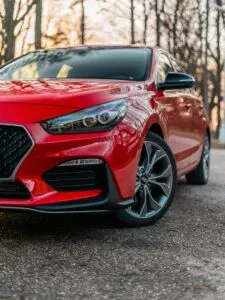
Rust Proofing Your Car: The Complete Guide
Is rust proofing your car worth it? All the myths and facts.
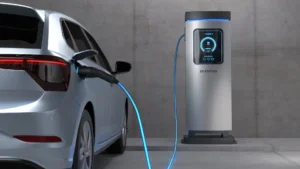
The Best Level 2 EV Chargers in Canada
As an EV owner, making sure you have the proper home charger is essential.

The Best Dash Cams in Canada
Dash cams protect you from some of the headache caused by fraudsters, accidents, or even insurance increases.
